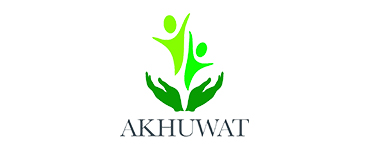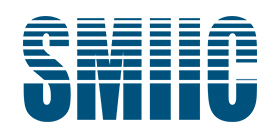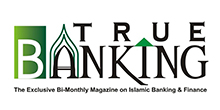
About Tureky
Turkey is considered to be the gateway between Europe and Asia; it is an Eurasian country located on the Mediterranean stretching across the Anatolian peninsula in southwest Asia and the Balkan region of southeastern Europe. It is bordered by the Black Sea, the Marmara Sea, the Aegean Sea and Mediterranean Sea.
Official Name: Republic of Turkey
| TURKEY | 2016 | Population, million | 78.6 | GDP, current US$ billion | 856 | GDP per capita, current US$ | 10, 807 | Gini Coefficient | 40.2 | Life Expectancy at Birth, years (2014) | 75.2 |
|---|
Developments since 2012, however, raise concerns about Turkey’s capacity to sustain progress. Growth has slowed, per capita income has stagnated at around US$9,000 per annum, unemployment is rising, and reform momentum has been uneven. Turkey’s macroeconomic achievements have also been challenged by an uncertain outlook. Slow growth in Europe and a deteriorating geopolitical environment in its neighborhood have negatively impacted exports, investment, and growth. The influx of 3 million Syrian refugees in 2015–16 created new social, economic, and political demands.
Political developments in 2015 and 2016 presented further challenges. Elections in June and November 2015, a cabinet reshuffle in May 2016, an attempted coup in July, and the consequent ousting of public officials have all affected the Government’s reform momentum. At the same time, a series of terrorist attacks have weakened tourism and foreign investment. Private investments have been delayed. The Government will need to take strong measures to address continuing structural vulnerabilities, revitalize private investment, boost growth, and resume Turkey’s convergence with Europe. New momentum is needed to improve the quality of education and boost productivity.
RECENT ECONOMIC DEVELOPMENTS
Turkey’s growth rate slowed from 6.1% in 2015 to 2.9% in 2016. After recording the largest contraction since the global financial crisis in the third quarter of 2016, GDP growth was stronger than expected in the fourth quarter, driven by a rebound in private consumption and net exports. In the second half of 2016, the current account deficit widened by US$3.3 billion to US$32.6 billion, mostly due to a sharp drop in tourist arrivals, while financial inflows weakened on the back of increased domestic uncertainty, deteriorating macroeconomic balances, and a less favorable global environment. After easing to 7% in November, headline inflation climbed to 10.1% in February 2017, due to the sharp increase in transport and food prices. Pump prices for gasoline and diesel increased by over 30% year-on-year (y-o-y) in February, due to the rebound in global oil prices and the depreciation of the lira. In addition, a poor harvest due to unfavorable weather conditions increased food prices, substantially adding to headline inflation. The rapid lira depreciation led the Central Bank to increase interest rates and return to unorthodox monetary policy.
Poverty and extreme poverty continue to decrease, albeit at a slower pace. The population with per capita expenditure below the poverty line (US$5 a day in 2005 purchasing power parity, or PPP) reached a low of 18.3%, from 24.1% a decade earlier. Extreme poverty, the population with per capita expenditure below US$2.5 a day in 2005 PPP, decreased to 3.1% compared to 5.3% in the early 2000s.
Unemployment has been on the rise, reaching 12.1% of the labor force in November 2016. This is 3.7 percentage points higher than November 2011, when the lowest unemployment rate of the decade was observed. Moreover, the jobless rate among the youth (ages 15–24) followed roughly the same trend by increasing to 21.6% in November 2016, very similar to the levels recorded during the economic crisis (21.8% in November 2009).
ECONOMIC OUTLOOK
Growth is expected to strengthen gradually in the course of 2017 and to be 3.5% for the year as whole. Following a contraction in 2016, exports are likely to grow in 2017 thanks to stronger growth in the EU, while imports are expected to increase at a moderate pace as domestic demand recovers. Security concerns are likely to limit the recovery of tourist arrivals from both Europe and Russia.
The depreciation of the lira may further feed into consumer prices, eroding household purchasing power. Moreover, the balance sheet of corporates might deteriorate, given the large open foreign exchange position, thus weakening private investment prospects. The recent monetary policy tightening is likely to constrain the recovery of domestic demand in the near future, while falling banking sector rollover rates may limit credit growth. In 2017, with a rising energy deficit due to the rebound in global oil prices, the current account deficit is expected to increase to 5% of GDP, while inflation is likely to remain well above target.
Poverty is forecasted to decrease at a slow pace in the midst of a sluggish labor market and rising inequality. With private consumption forecast to grow in the coming years, poverty and extreme poverty are estimated to decline to 16.8 and 2.82%, respectively, in 2017 and to 16.2 and 2.73% in 2018.
This forecast depends crucially on there being no further deteriorations in the labor market; it also assumes that the current social assistance scheme will remain unchanged. Although in recent years lower income households have had increasing access to quality jobs in the formal sector, the high labor costs and minimum wage in a context of slower economic activity will be putting some of the gains at risk.


